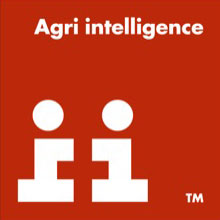
With the launch of the new recommended list for cereals and oilseed rape in November 2023, Agrii’s seed experts Rodger Shirreff, national seed business manager, John Miles, seed technical manager, and David Leaper, seed technical specialist, share their opinions on this podcast and look into what’s new. We have brought you the key take homes below, also covering what this means for seed availability and the grower.
Understanding the Value of the Recommended List
(0:36 – 1:25)
The discussion begins with a deep dive into the significance of the recommended list. Rodger sheds light on its crucial role in identifying the gross output potential of crops and managing associated risks.
“The list is very good at identifying the national potential yield of varieties”
Rodger Shirreff
“The ultimate aim (of the RL) is to ensure there are a smaller number of high-quality varieties that growers can choose from”
John Miles
Agrii’s Independent Work
(1:33 – 2:43)
John takes us on a deep dive into Agrii’s independent trials. He underscores the importance of on-farm conditions and different input regimes, providing a valuable regional perspective. David also adds his thoughts on the recommended list’s benchmarking value while highlighting gaps in information related to growth habits and pest resilience.
“The Agrii trials supplement the RL data. We look at things like lodging with varying seed rates and competitiveness against black grass”
John Miles
“There are some gaps in the RL data. The biggest one with oilseed rape has been growth habit and how varieties can cope with the burden of adult and larval damage from CSFB”
David Leaper
Review of Last Year’s Varieties
(4:59 – 6:55)
The conversation shifts to a review of last year’s recommended varieties, specifically focusing on winter wheat. Rodger discusses successful varieties like Dawsum and Champion, stressing the importance of growers being aware of potential weaknesses, such as standing ability.
“There was a big interest (in Dawsum), and it turned out to deliver the goods for farmers. The limiting factor (to its market share) was seed availability”
Rodger Sherriff
“There is no dispute of Champion’s yield potential or Septoria resistance, which has contributed to its strong performance. It’s not a completely safe package (because of the lodging risk), but there are a lot of positive points”
John Miles
Key Wheat Varieties for the Coming Season
(8:20 – 10:16)
The experts transition to discussing key wheat varieties for the upcoming season. Rodger highlights SY Cheer in Group 1, Bamford in Group 3 soft, and Blackstone in Group 4. The importance is placed on quality, disease resistance, and end-market suitability.
“Bamford topped Agrii’s trials across all varieties. It is recommended for distilling, and combined with its yield, I expect it to take a lot of market share, especially in the North”
Rodger Sherriff
“Some of the varieties recommended in the last few years have had a significant agronomic weakness. However, if you look at Beowulf, Blackstone or Bamford, you are very hard-pressed to find anything to worry about. Not only are they high yielding, but they have solid all-round packages”
John Miles
The Role of Chemistry in Crop Protection
(10:47 – 11:22)
Tramlines host Tony Smith prompts John to discuss the importance of chemistry in protecting crops. John highlights the need to assess specific disease pressures and adjust chemical applications accordingly to address potential weaknesses in varieties.
“Even with varieties like Extase, there is still a yield response (to fungicides) of 1 t/Ha”
John Miles
Winter Barley Overview
(13:47 – 15:47)
The focus shifts to winter barley, with John providing insights into varieties like Tardis and Caravelle. The conversation touches on grain quality, disease resistance, and standing ability.
“In the RL data, there is not much between them (Caravelle and Capitol). In our trials, there is a 5% untreated yield difference in Caravelle’s favour. Capitol will be of interest, but to us, Caravelle is the better all-round variety and is in the market sooner”
John Miles
“There is a new BYDV recommended variety, which is a hybrid barley. There isn’t a two-row option as yet, but (growers) do have a new hybrid BYDV six-row now available (to go alongside Feeris)”
John Miles
Oilseed Rape
(3:02 – 4:34) & (15:48 – 21:24)
In this section of the podcast, Agrii’s ongoing research efforts to fill these knowledge gaps are discussed. He discusses the dominance of Limagrain in oilseed rape breeding, highlighting successful traits like turnip yellow’s virus resistance. Newer varieties, including Armada, Academic, and Adeline, are introduced to address weaknesses in older varieties like Aurelia.
“Armada, Academic and Adeline are taking (OSR) varieties forward. We took the decision three years ago to market Auckland, which is well-positioned on the list, and we don’t see much of a difference between that and the new LG varieties versus some older ones like Aurelia”
David Leaper
“Interest in schemes offsetting the risk in crop establishment has driven variety choice more so than new varieties. We anticipate our big sellers last autumn like Ambassador, Auckland, Exsteel and INV1035 will remain (the top varieties)”
David Leaper
Seed Multiplication and Ensuring Seed Availability
(21:25 – 26:56)
The experts discuss seed multiplication and provide insights into Agrii’s crop plan, featuring popular varieties like Skyfall and Bamford.
“Our crop plans have had to change because of the weather, and we are still planting (seed crops). Some of the older varieties are still big players for us. Dawsum and Champion have large areas, and we still sell more Graham as a proportion than the market overall,”
Rodger Sherriff.
“If you want to optimise your black grass competition, then it has to be a hybrid to affect the seed head number, size and seed return. Kingsbarn is still very popular, and we have Armadillo, which didn’t make it to the list but has good data supporting its black grass competitiveness,”
John Miles.
Utilising the Recommended List
(27:29 – 28:49)
of characteristics they require in a variety. Engaging with local iFarm events and understanding the priorities for their specific regions will help them make informed decisions, even with the abundance of varieties in the market.
“List the characteristics you aren’t prepared to budge on. By the time you have gone through that list, there is probably only one or two to choose between,”
John Miles.
“Don’t always select a variety just because it is the highest yielding. Often, the best varieties sit in the middle of the pack and are supported by a much broader range of characteristics that will deliver longer term.”
David Leaper.
To discover the best place to start with varieties for this autumn, listen to the full podcast here
Claim 1 BASIS and NRoSO point for listening to this podcast. Email info@agrii.co.uk with your membership number, full name, postcode and date of birth.



